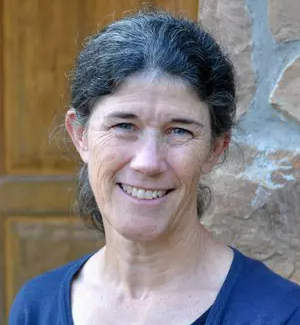Palliative care is medical care that helps manage the pain, side effects and stress related to a serious illness, regardless of a person’s life expectancy or prognosis. It can benefit people of any age or stage of illness. It can be provided in tandem with curative or life-prolonging treatment. Read on for the benefits of palliative care.
As a palliative care physician, I find one of the most common misconceptions about palliative care is that it is only for people at the end of life. While palliative care can greatly improve a person’s quality of life when they are facing a life-limiting illness, it is also beneficial for people receiving treatment to cure a disease (curative treatment).
We offer support to people with many diseases, such as cancer, chronic obstructive pulmonary disease (COPD), congestive heart failure, stroke, Parkinson’s disease, Alzheimer’s disease, dementia, kidney disease and many more.
Benefits of Palliative Care
Palliative care aims to improve a person’s quality of life at any stage of a disease. Palliative care can offer:
Symptom management. Palliative care helps people live a better quality of life. We treat pain and symptoms so people feel better. We work with other members of the medical team to help a person breathe better, eat better, sleep more soundly, manage stress, tolerate medical treatment, have improved digestion, have more confidence, manage activities of daily living without becoming exhausted, and manage pain that results from either the disease itself or the treatment.
Psychosocial and emotional support. Treatment for a serious illness can take a toll on a person’s self-image, confidence and stress level. It can also affect a family’s dynamics since spouses or children often take on the role of caregivers. We help patients and families manage stress and adjust to their “new normal.”
Resources for the family. Through Care Navigation, we help patients and families find resources in the community like home care, caregiver support groups and medical equipment to maintain independence.
Planning for the future. As a palliative care physician, I help start those difficult discussions about the “what ifs.” Our team helps patients and families understand how to appoint a health care power of attorney and how to complete a living will. We listen to patients and families so we can understand what is important to them. Then we help advocate for patients and families to ensure medical treatments help them achieve their goals. We provide guidance through a complicated medical system.
A shift in focus. If a person’s disease continues to progress despite maximum medical therapy and the burden of treatment and the disease starts to become overwhelming, we can explore options of shifting from treating the disease aggressively to treating the symptoms aggressively.
How Palliative Care Works
We are team-based and meet patients where they are. We have nurse practitioners, physician assistants and physicians who see patients at the Pardee Cancer Center, at our outpatient clinic, in the hospital, in rehabilitation facilities, at assisted living facilities and at home. Our palliative care team also includes social workers and a chaplain who are available to meet with or call patients and their families.
We schedule visits according to the patient’s and family’s needs. Sometimes just one visit can help a person clarify their treatment and symptom management goals. Other times, we will see a person every other week until symptoms are under control.
Our nurses are available to help with medication or symptom questions, and our administrative staff can help coordinate appointments. We have providers on-call 24/7 who can provide support over the phone after hours and on weekends. While we do not have home health aides or certified nursing assistants (CNAs) on our team, we can direct families to organizations that can provide caregiver support and home care.
Our provider visits are covered by Medicare, Medicaid and by most private insurers.
Collaborating with the Medical Team
Patients can self-refer to palliative care or they can be referred by someone on their medical team. We always request a patient’s permission to communicate with other important members of their medical care team because palliative care is a collaborative service.
We do not take the place of a person’s oncologist, nurse navigator, primary care provider, surgeon or home health team, but act as an extra layer of support. We communicate directly with a patient’s other medical providers so their care is coordinated.
Palliative care is an opportunity to focus on what matters most to a person, whether it is being able to garden or exercise again, play with their grandkids, walk without assistance or manage pain. We aim to pull the pieces together and improve each person’s quality of life.
For me, it is also a chance to spend time with patients and their families, and to hear a person’s story. I have had the opportunity to meet and work with many amazing people. It is rewarding to see people who can function and feel better as a result of palliative care.
Physician consultations are normally covered by Medicare, Medicaid and most private insurers. Other services provided by the palliative care team are supplemented by grants and community support.
To learn more, visit pardeehospital.org/care-treatment/palliative-care/ or call Four Seasons Compassion for Life at 828-692-6178 or 866-466-9734.





